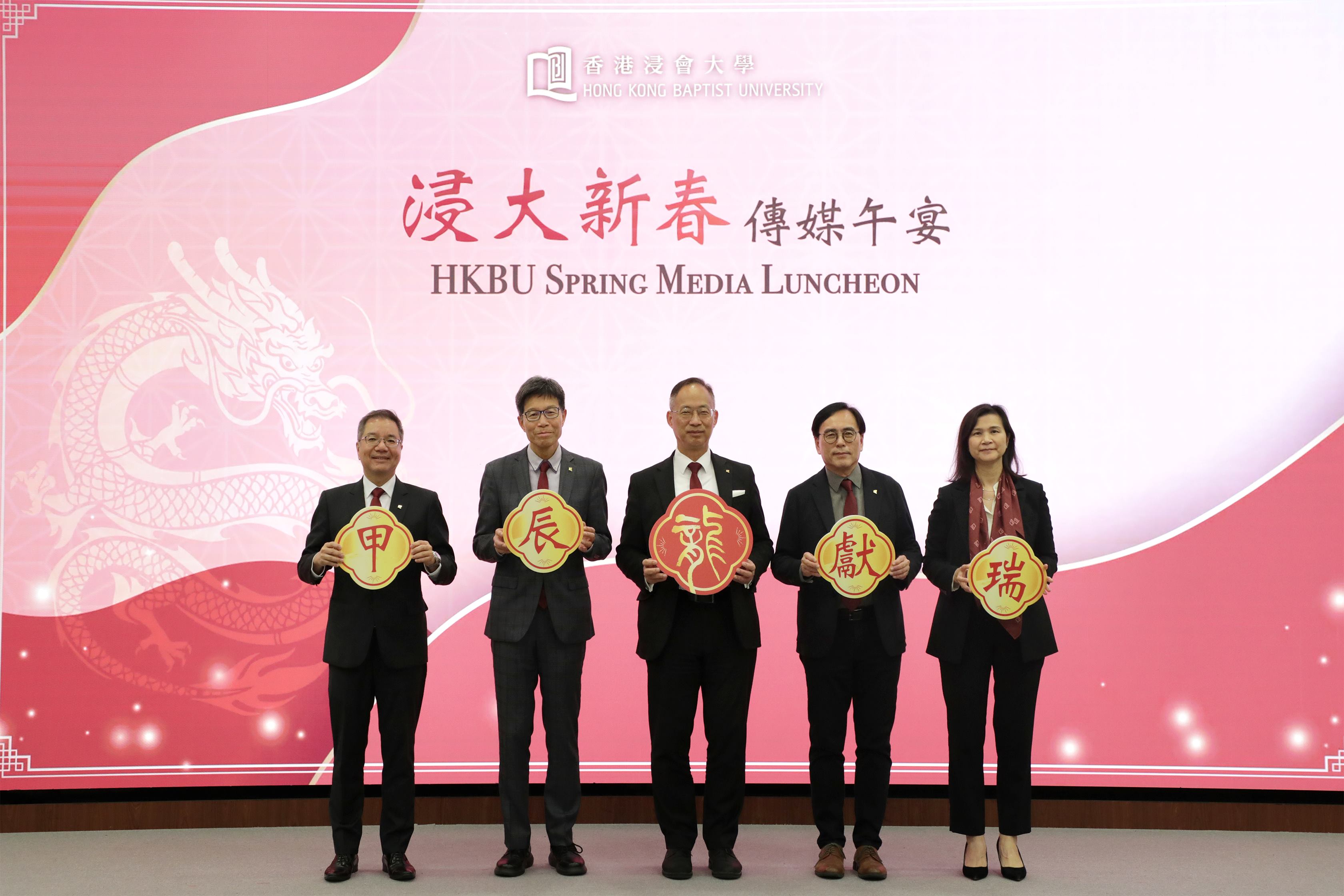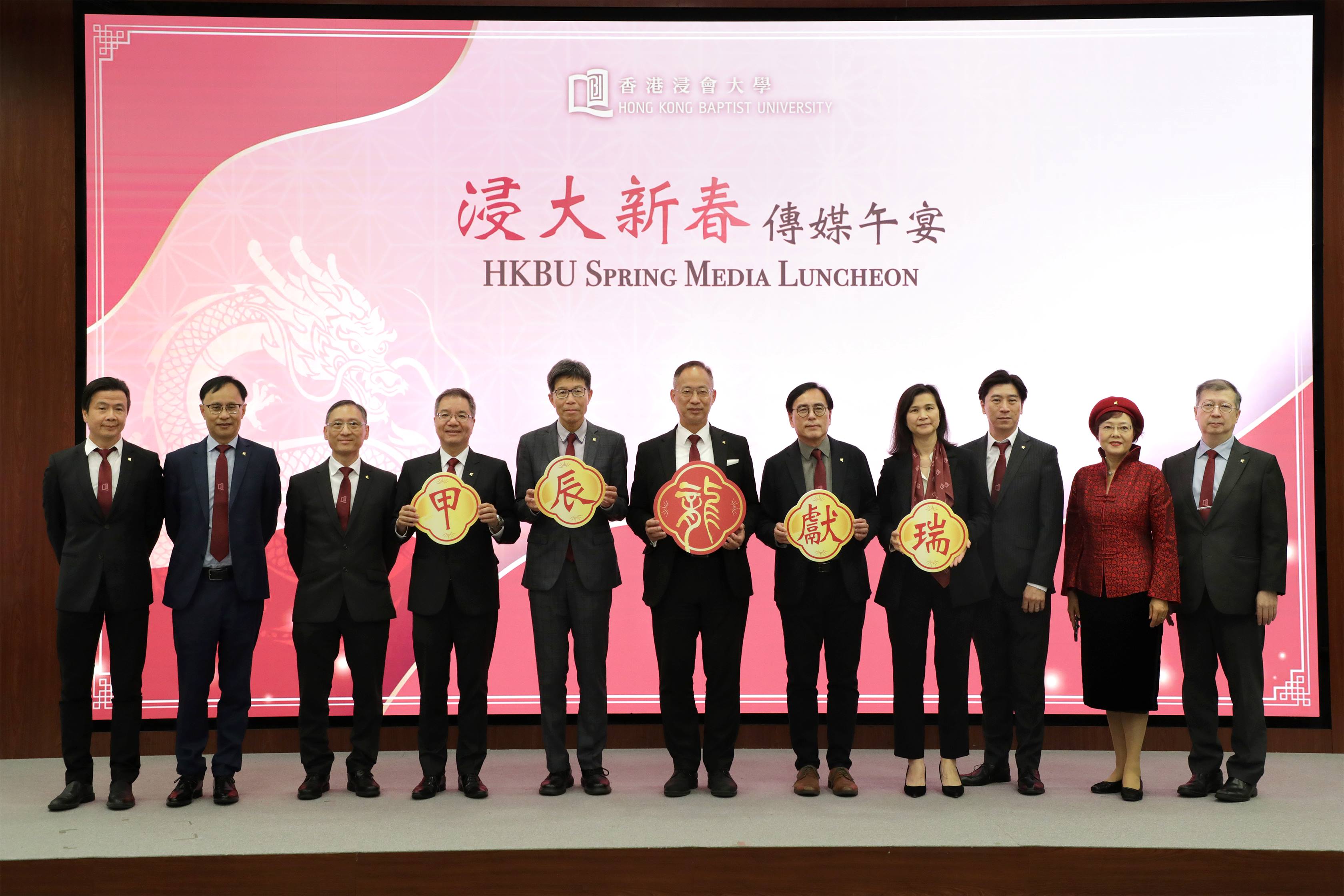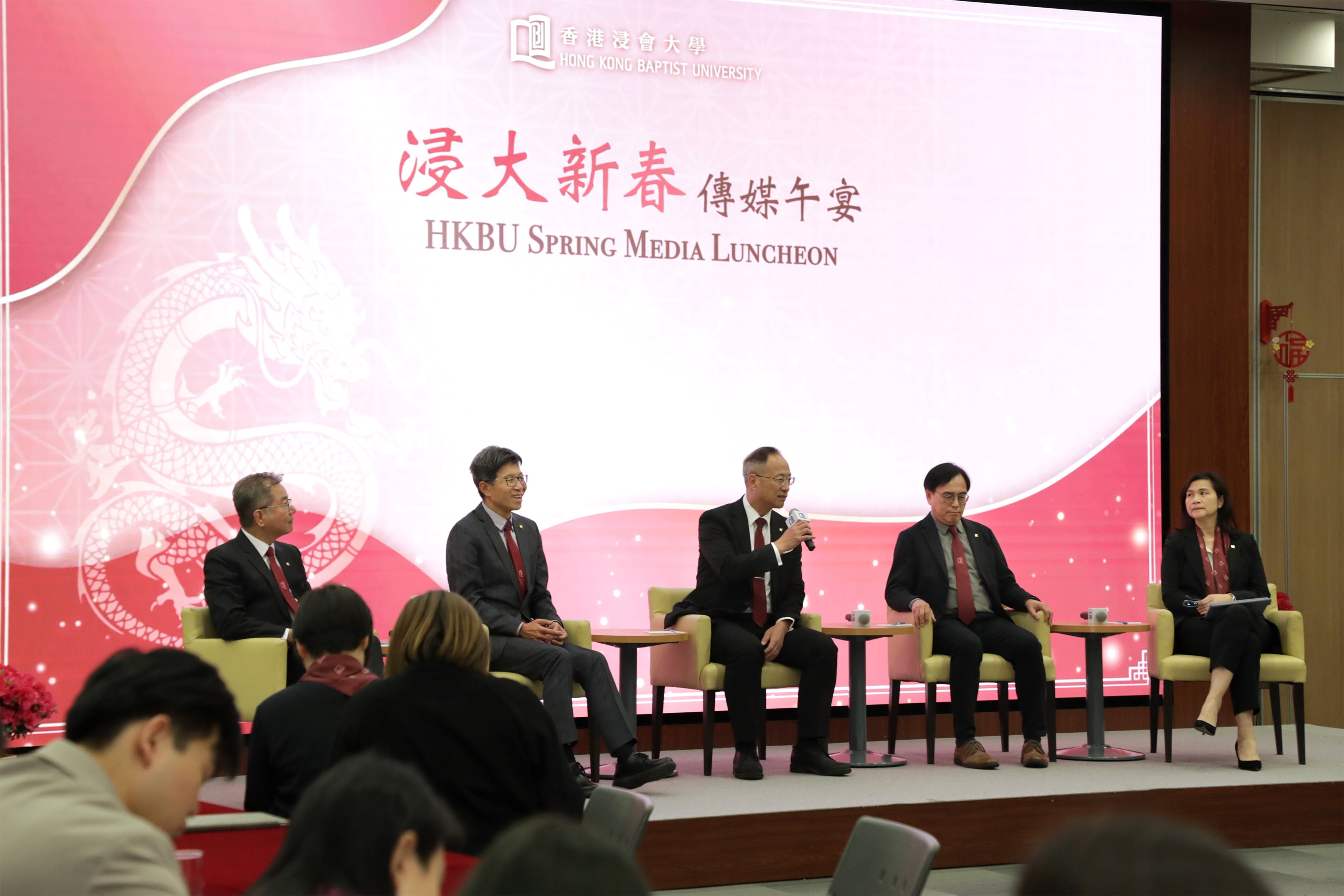Press Release
HKBU Spring Media Luncheon
Thursday, 15 February 2024
At a Spring Media Luncheon today (15 February), Hong Kong Baptist University (HKBU) President and Vice-Chancellor Professor Alex Wai introduced to the media the University’s latest developments in different aspects, alongside other senior management team members and faculty representatives.
Apart from Professor Wai, Provost Professor Martin Wong Vice-President (Teaching and Learning) and Acting Dean of Arts Dr Albert Chau, Vice-President (Administration) and Secretary Ms Christine Chow, Interim Chief Innovation Officer Professor Terence Lau, as well as deans and representatives of faculties also joined the occasion.
Professor Wong introduced at the luncheon HKBU’s development strategy in academic research. One of the focuses is the introduction of a new cluster – namely Humanities and Cultures – by bringing together disciplines such as philosophy, literature, social work, sociology, geography, history, political science, learning sciences and human development, communication and economics. It will address critical issues including East-meets-West cultural exchange, future societies and economies, and human-nature relationship. This is in addition to the three existing research clusters of Creative Media/Practice, Health and Drug Discovery, as well as Data Analytics and Artificial Intelligence (AI) in different applications. The addition will further promote transdisciplinary collaboration and research, and support the HKSAR government’s strategic positioning of Hong Kong as an East-meets-West Centre for international cultural exchange.
Dr Chau shared HKBU’s latest developments in enriching students’ learning experience, including the novel concept of “One University, Two Campuses” (involving the campuses of HKBU in Hong Kong and Beijing Normal University-Hong Kong Baptist University United International College, or BNU-HKBU UIC, in Zhuhai). Through the “Extended Study Programme in Greater Bay Area” (see note), students can study at the other campus for a semester or a year, and complete various experiential learning activities with transferable credits. Students from Hong Kong can also join internships at enterprises in the Greater Bay Area (GBA). All exchange students at HKBU can choose to visit the GBA, stay at HKBU-BNU UIC and experience the culture of the GBA, achieving “One Exchange, Two Experiences”. Since its launch in last October, the programme has attracted the participation of 180 exchange students from 40 countries.
Ms Chow introduced the latest progress of major construction projects on campus, including the Jockey Club Campus of Creativity located at Renfrew Road, Kowloon Tong. The campus covers a site area of approximately 7,500 square metres, and its main facilities include residential colleges (providing more than 1,700 hostel places), learning and teaching as well as co-creation spaces. The Village CARE, comprising four residential colleges, is expected to be completed later this year. It will adopt a new model of residential education that seamlessly integrates learning and teaching, and student residential space to meet the pedagogical needs. Additionally, the University is looking forward to the phased opening of Hong Kong’s first Chinese Medicine Hospital in 2025, with HKBU honoured to be the service deed contractor. The Hospital will collaborate closely with other local, Mainland and overseas partners to develop itself as the flagship in clinical service, teaching and training, scientific research, and the creation of value for health.
Professor Lau elaborated on the University’s efforts in promoting technology translation and knowledge transfer. Regarding the development of collaboration platforms, HKBU has participated in international events actively to connect and exchange with different stakeholders and promote scientific research at the University; fostered the modernisation of Chinese medicine, collaboration between Chinese and Western medicines, as well as innovations in biotechnology through strategic partnership with the industry; and promoted cross-area research and applied AI in different areas of technological innovations. The University also established the Art Tech Incubation Hub and e-Fund to promote innovation and entrepreneurial development. On the same occasion, Professor Lau also shared the fruits of a number of impactful research projects of the University, including art tech projects of the Visualisation Research Centre, and the development of innovative Chinese medicine with clinical trial approval by the US Food and Drug Administration.
Addressing the media members, Professor Wai said: “Amid an era of rapid changes, universities need to keep up with the pace in different aspects including learning and teaching, research and institutional development in order to nurture talent who have a broad vision, can master the future and take up the reins of technology development, and at the same time create knowledge in response to complex global issues. I am thrilled by our University members’ unfailing commitment, courage to innovate, and outstanding achievements attained in the past few years. We will continue to prioritise and extend our learning and teaching, research, technology translation and knowledge transfer initiatives with the objective of contributing to society and the country.”
- End -
Note: Co-organised by HKBU-BNU UIC in Zhuhai.


